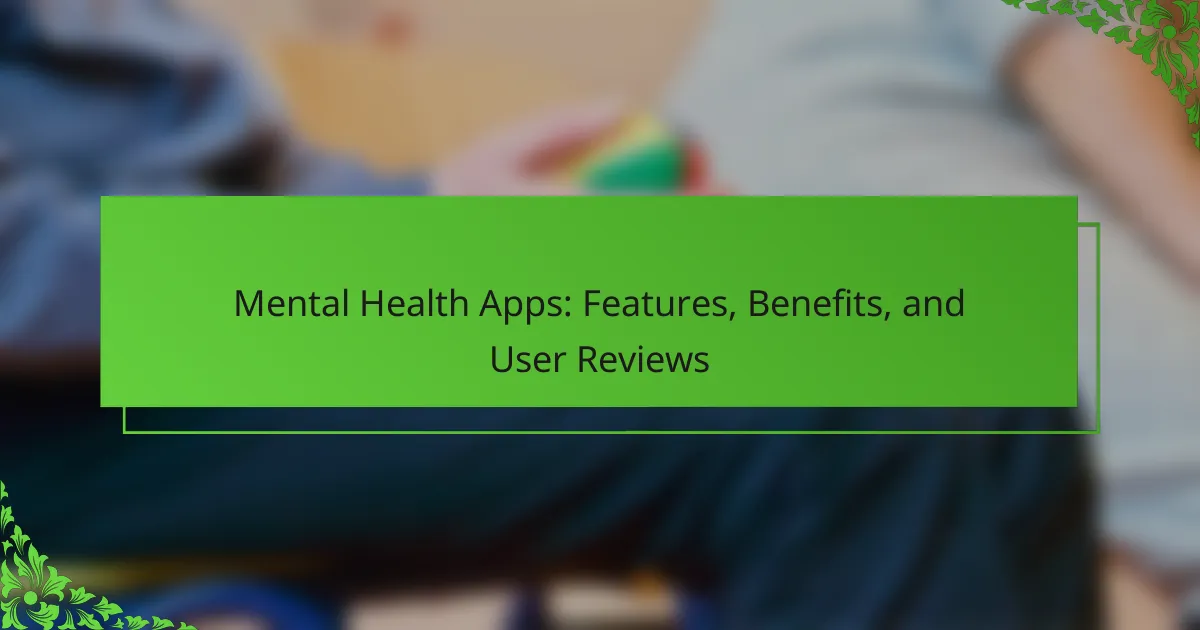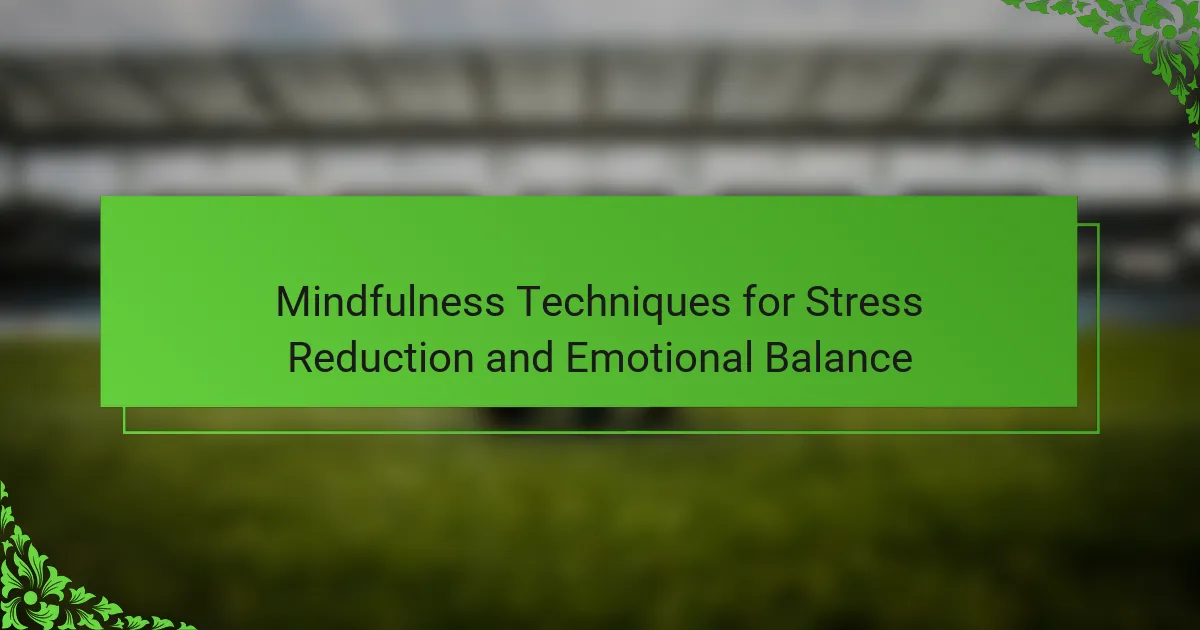Mental health apps provide essential tools for managing emotional well-being and reducing stress. Key features include mood tracking, guided meditation, and cognitive behavioral therapy exercises. Users benefit from personalized content, community support, and professional guidance. User reviews play a crucial role in assessing app effectiveness and shaping perceptions.
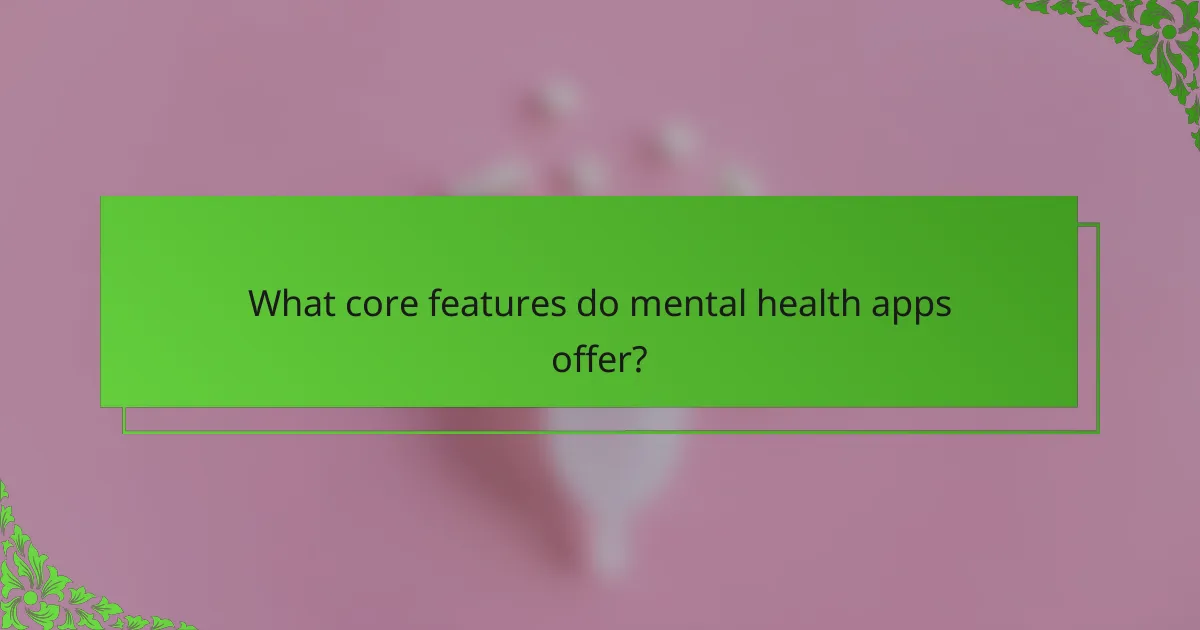
What core features do mental health apps offer?
Mental health apps offer features such as mood tracking, guided meditation, and cognitive behavioral therapy exercises. These tools help users manage stress, improve emotional well-being, and track their mental health progress.
Common features include personalized content, community support, and professional guidance. Unique attributes may involve integration with wearable devices, providing real-time feedback. Rare features can include AI-driven chat support for immediate assistance.
How do user interfaces impact mental health app effectiveness?
User interfaces significantly influence the effectiveness of mental health apps by enhancing user engagement and satisfaction. Intuitive designs promote ease of navigation, encouraging consistent usage. Features like personalized content and user-friendly layouts can lead to better outcomes, as users feel more connected and motivated. Research indicates that well-designed interfaces can reduce anxiety and enhance the therapeutic experience. For example, apps with clear visual hierarchies and accessible features often receive higher user ratings, directly correlating to perceived effectiveness.
Which tracking tools are commonly integrated into these apps?
Mental health apps commonly integrate tracking tools such as mood trackers, sleep monitors, activity logs, and journaling features. These tools help users monitor their mental well-being and identify patterns over time. Some apps also incorporate biometric data tracking, such as heart rate and stress levels, enhancing personalized insights. Popular tools include Calm’s meditation timer and Headspace’s sleep sounds, which provide users with tailored experiences based on their tracked data.
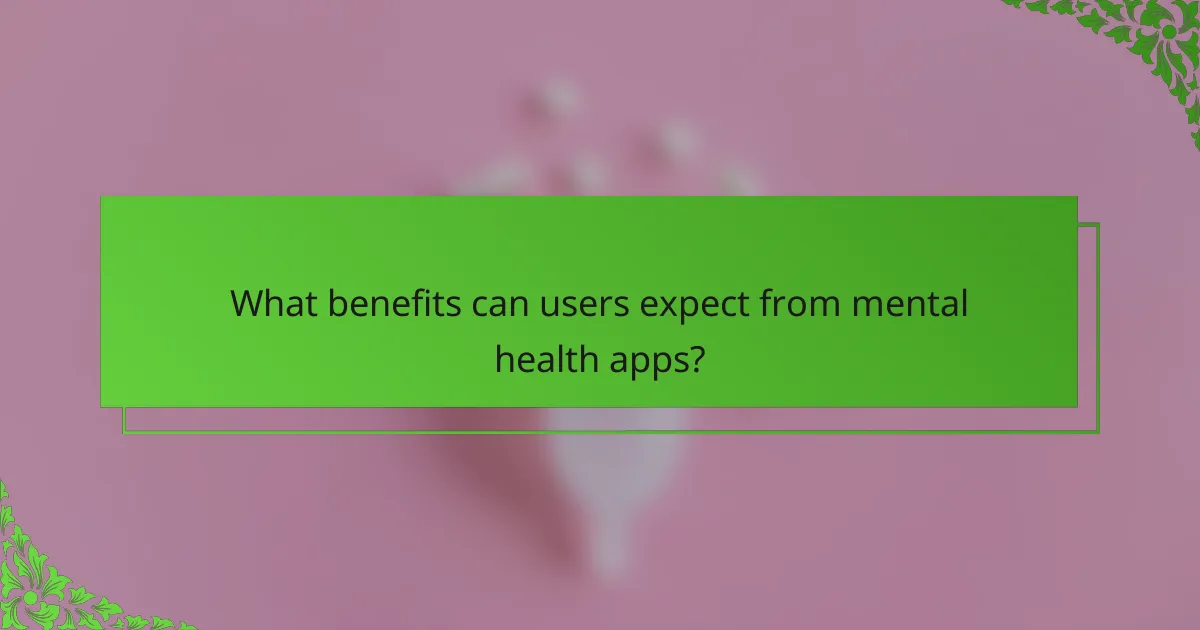
What benefits can users expect from mental health apps?
Users can expect numerous benefits from mental health apps, including improved mood tracking, access to therapy resources, and personalized coping strategies. These applications enhance mental well-being by providing tools for mindfulness, stress management, and emotional support. Many users report increased awareness of their mental health patterns, which can lead to better self-regulation. Additionally, the convenience of accessing these resources anytime can significantly reduce barriers to seeking help.
How do these apps enhance emotional well-being?
Mental health apps enhance emotional well-being by providing accessible resources, personalized support, and evidence-based tools. They offer features like mood tracking, guided meditations, and cognitive behavioral therapy exercises. These tools empower users to manage stress and anxiety effectively. User reviews often highlight improvements in mood and coping skills, showcasing the apps’ positive impact on daily life.
In what ways do mental health apps support therapy and counseling?
Mental health apps support therapy and counseling by providing accessible resources, tracking progress, and enhancing communication. These tools offer features like guided exercises, mood tracking, and virtual therapist interactions. As a result, users can engage in self-help strategies and receive professional support conveniently. Many apps also include community support features, fostering connection among users.
What are the accessibility advantages of using mental health apps?
Mental health apps provide significant accessibility advantages, including 24/7 availability, which allows users to seek support anytime. They often include features like guided meditations and mood tracking, making mental health resources more user-friendly. Additionally, these apps can reduce stigma by allowing users to seek help privately and anonymously. Accessibility is further enhanced by providing a variety of languages and formats, catering to diverse user needs.
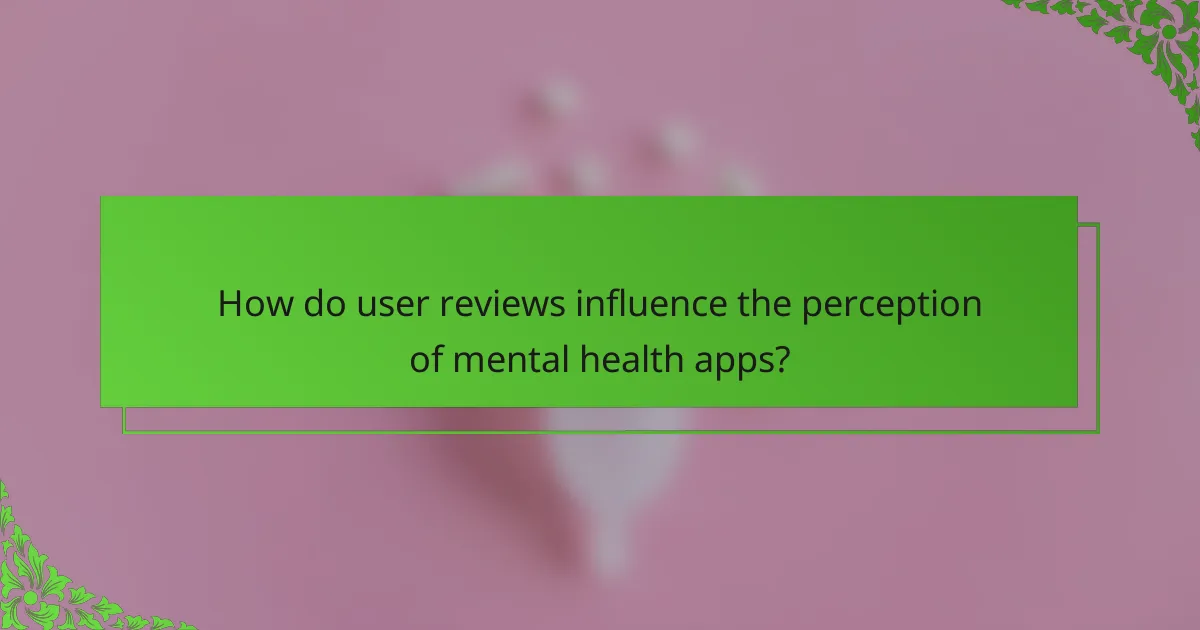
How do user reviews influence the perception of mental health apps?
User reviews significantly shape the perception of mental health apps by providing real user experiences and insights. Positive reviews enhance credibility, while negative feedback highlights potential issues. Users often rely on ratings and comments to assess app effectiveness, usability, and support. High ratings can lead to increased downloads, demonstrating the influence of social proof in user decision-making. Additionally, detailed reviews can guide app developers in improving features and addressing user needs.
What common themes emerge in positive user feedback?
Positive user feedback on mental health apps often highlights themes like usability, effectiveness, and support. Users appreciate intuitive interfaces that enhance engagement and ease of navigation. Many report significant improvements in their mental well-being, citing features like mood tracking and guided meditations as particularly beneficial. Additionally, personalized content and community support foster a sense of connection, which users find invaluable. These themes reflect the apps’ ability to address diverse mental health needs while promoting user satisfaction.
What criticisms do users frequently highlight?
Users frequently criticize mental health apps for lack of personalization, inadequate user support, and data privacy concerns. Many report that features feel generic and do not cater to individual needs. Users also express frustration over technical glitches and limited content updates. Additionally, some worry about the security of their personal information, impacting their trust in these platforms.
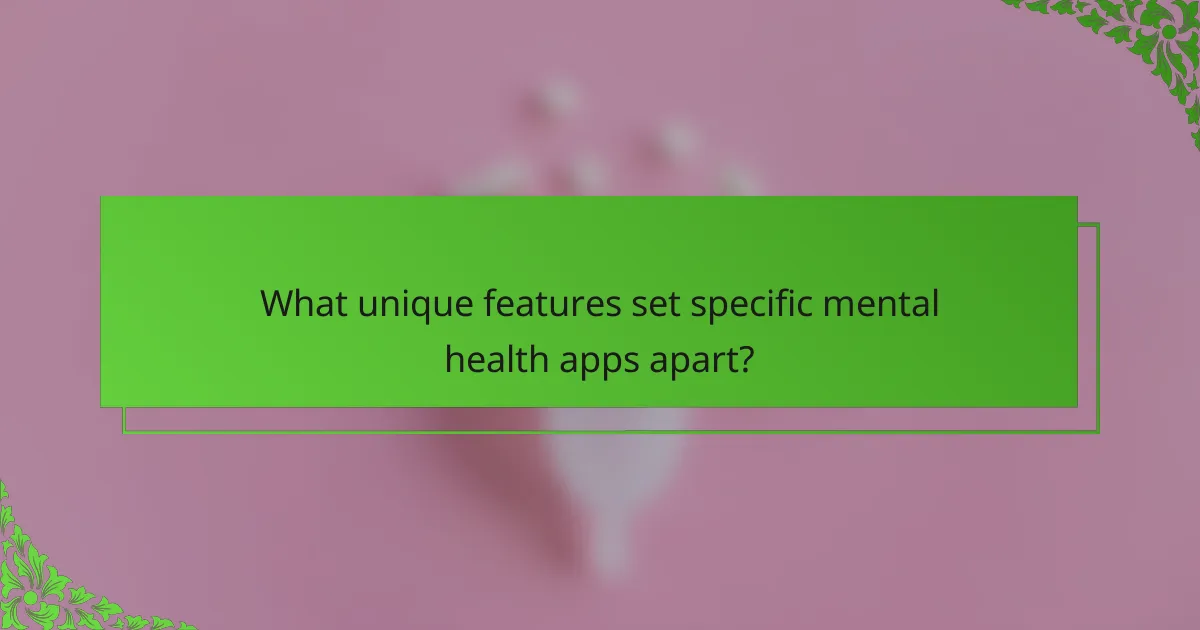
What unique features set specific mental health apps apart?
Unique features that set specific mental health apps apart include personalized therapy options, AI-driven mood tracking, and community support forums. These attributes enhance user engagement and provide tailored mental health solutions. For instance, some apps utilize machine learning to adapt recommendations based on user behavior, creating a unique experience. Additionally, features like guided meditations and crisis support hotlines are rare but valuable, offering immediate assistance when needed.
How do gamification elements enhance user engagement?
Gamification elements significantly enhance user engagement in mental health apps by making interactions more enjoyable and rewarding. These features, such as points, badges, and challenges, motivate users to consistently use the app.
Research indicates that gamification can increase user retention by up to 30%. By incorporating progress tracking and social sharing, users feel a sense of accomplishment and community. This approach not only promotes positive mental health habits but also fosters a supportive environment.
Moreover, unique attributes of gamified systems, such as personalized feedback and adaptive challenges, cater to individual user needs, enhancing the overall experience. As a result, mental health apps that utilize gamification are more likely to achieve their intended outcomes, improving user satisfaction and mental well-being.
Which apps incorporate AI for personalized experiences?
Several mental health apps utilize AI to enhance user experiences through personalization. Notable examples include Woebot, Wysa, and Youper.
Woebot offers conversational AI support, providing tailored mental health advice based on user interactions. Wysa employs AI-driven chat to deliver customized coping strategies and mood tracking. Youper uses AI to analyze user emotions and suggest personalized interventions.
These apps leverage AI to adapt to individual needs, improving user engagement and mental health outcomes.
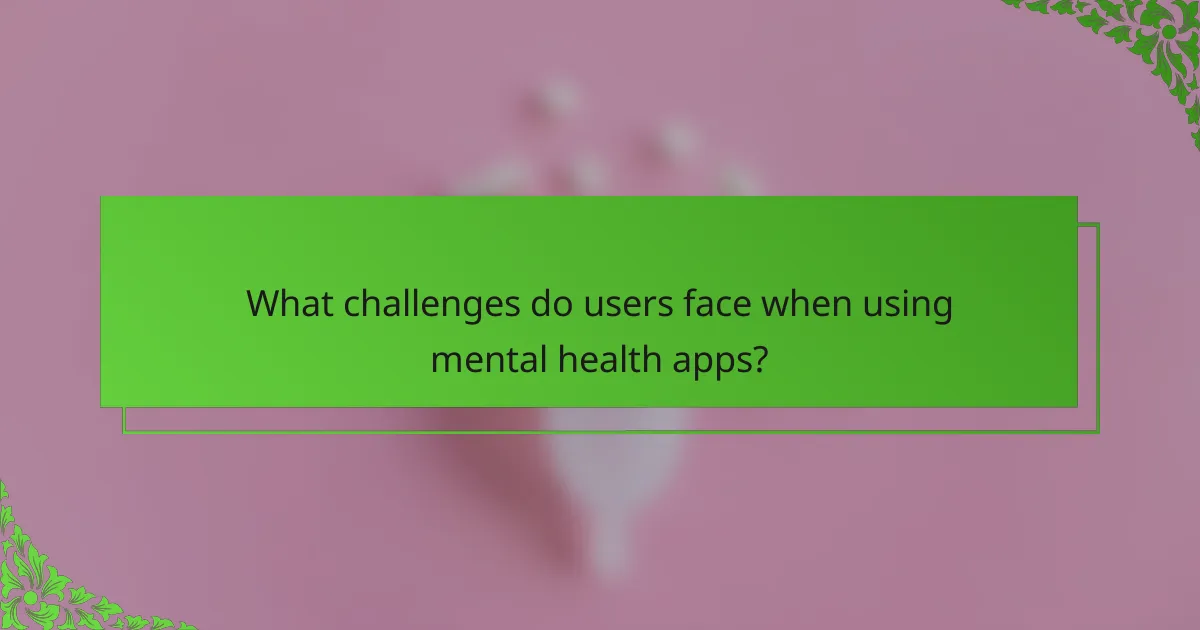
What challenges do users face when using mental health apps?
Users face several challenges when using mental health apps, including usability issues, privacy concerns, and a lack of personalized content. Many apps have complex interfaces that can be overwhelming, making it difficult for users to navigate effectively. Privacy is a significant concern, as users worry about the security of their sensitive data. Additionally, some apps do not offer tailored experiences, which can reduce engagement and effectiveness. These challenges can hinder the overall user experience and limit the potential benefits of mental health apps.
How do privacy concerns affect user trust and app usage?
Privacy concerns significantly diminish user trust and app usage in mental health applications. Users prioritize personal data security, and breaches can lead to a loss of confidence. Research indicates that 70% of users are less likely to use an app if they perceive inadequate privacy measures. Features like end-to-end encryption and transparent data policies enhance user trust. Mental health apps that prioritize user privacy often see increased engagement and positive reviews, demonstrating a direct correlation between privacy assurance and user retention.
What technical issues are commonly reported by users?
Common technical issues reported by users of mental health apps include login problems, slow performance, app crashes, and difficulties in accessing features. Users often experience connectivity issues, which can hinder real-time interactions and tracking of mental health progress. Additionally, some apps lack adequate customer support, making it challenging for users to resolve technical difficulties promptly.
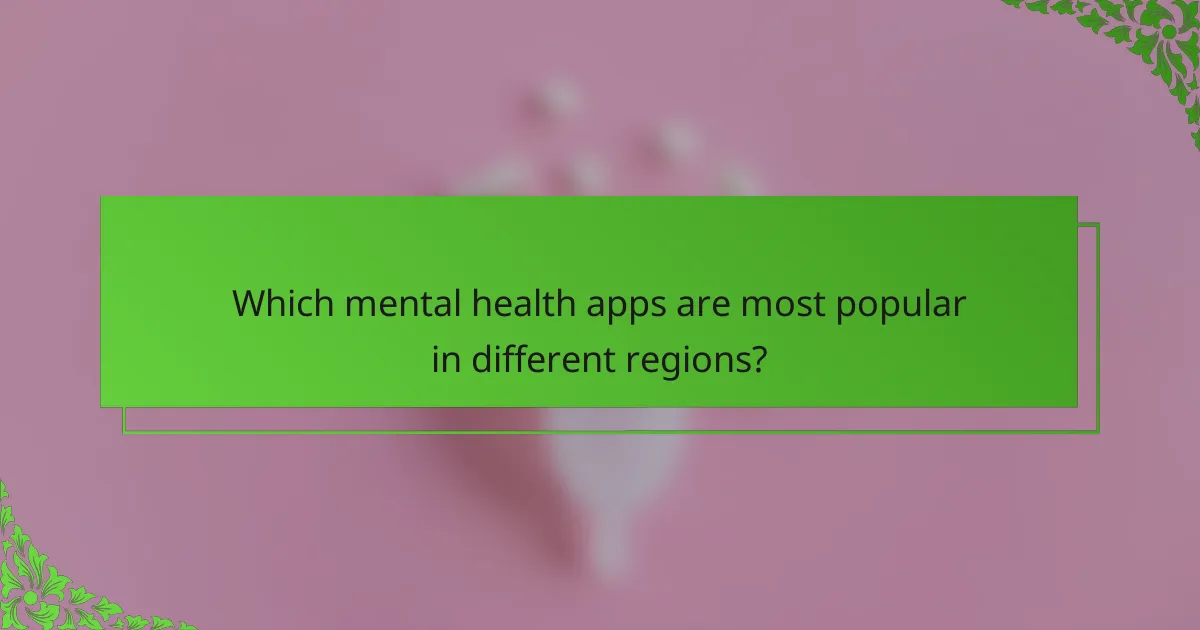
Which mental health apps are most popular in different regions?
The most popular mental health apps vary by region, with notable preferences in specific areas. In North America, apps like Calm and Headspace lead due to their comprehensive features and user-friendly interfaces. In Europe, apps such as MindDoc and Ieso Health are favored for their focus on therapy and mental health tracking. Asia shows a rising trend in apps like Woebot and Youper, which incorporate AI for personalized support. Each app provides unique benefits tailored to regional mental health needs, enhancing user engagement and satisfaction.
What factors contribute to regional preferences for specific apps?
Regional preferences for specific mental health apps stem from cultural values, language accessibility, and local mental health awareness. For instance, apps tailored to specific languages or cultural practices resonate more with users. Additionally, community support systems influence the choice of apps, as regions with strong mental health advocacy may favor apps that promote user engagement and resources.
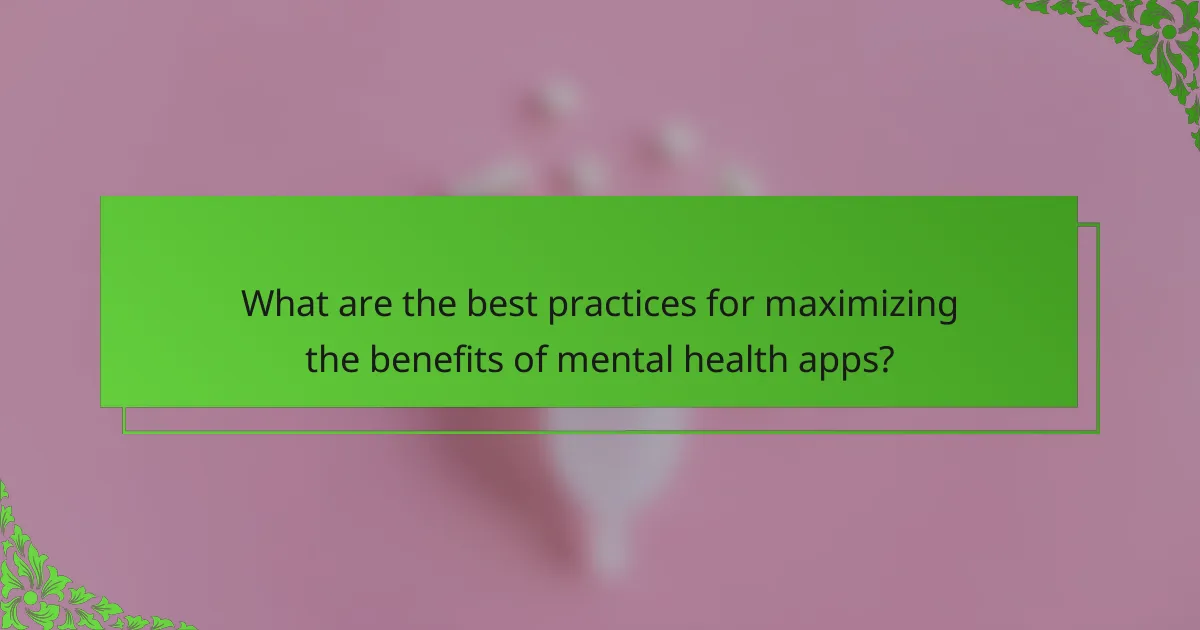
What are the best practices for maximizing the benefits of mental health apps?
To maximize the benefits of mental health apps, users should prioritize features that enhance engagement and support. Key practices include setting clear goals, utilizing reminders for daily check-ins, exploring community features for social support, and tracking progress over time.
Integrating mindfulness exercises and cognitive-behavioral techniques can significantly improve user experience. Regularly reviewing user feedback helps identify effective practices and areas for improvement. Engaging with app updates ensures access to the latest features and resources.
How can users effectively integrate these apps into their daily routines?
Users can effectively integrate mental health apps into their daily routines by setting specific times for use, utilizing reminders, and engaging with features that promote consistency. Establishing a routine can enhance the benefits of these apps, such as mood tracking and mindfulness exercises. Additionally, users should explore community features or user reviews for motivation and support. Regularly assessing personal progress within the app can also reinforce positive habits and outcomes.
What common mistakes should users avoid when using mental health apps?
Users should avoid common mistakes such as neglecting privacy settings, relying solely on app recommendations, and ignoring professional help. These errors can hinder the effectiveness of mental health apps.
Many users fail to customize their app experience, missing out on personalized features that enhance usability. Additionally, overlooking progress tracking can prevent users from recognizing improvements or setbacks in their mental health journey.
Another frequent mistake is using apps as a replacement for therapy rather than a complementary tool. This misunderstanding can lead to inadequate support for serious mental health issues.
Finally, users often underestimate the importance of app reviews and community feedback, which can guide them in choosing the most suitable mental health app for their needs.
